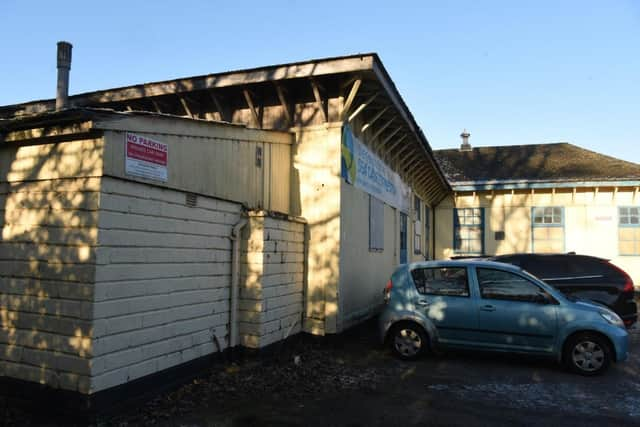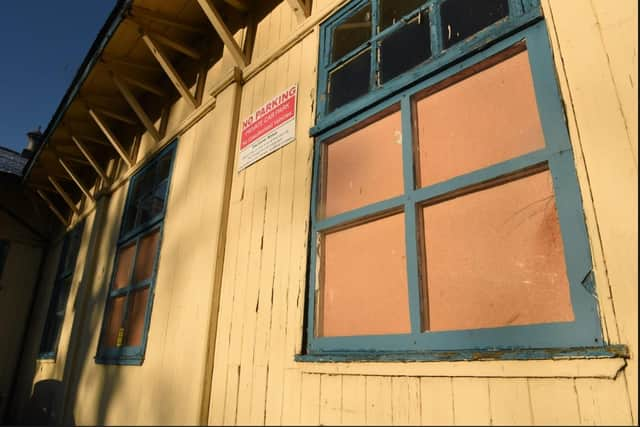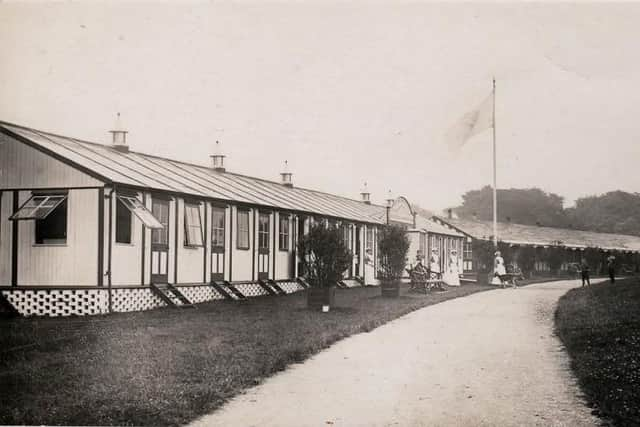WW1 relic in danger of being lost as Lancashire weather continues to take its toll
and live on Freeview channel 276
Two wooden buildings rescued from a battlefield casualty hospital on Moor Park and used as the city's Sea Cadet base in Strand Road for more than 80 years, continue to deteriorate after being condemned as in danger of collapse.
The Sea Cadets, who operate from a purpose-built centre next door, withdrew an application to knock down the century-old hospital huts in August 2019 saying they wanted to "resubmit plans that ensure that the buildings' heritage can be maintained."
Advertisement
Hide AdAdvertisement
Hide AdBut no visible work has yet been done to arrest the decline. And, as another Lancashire winter batters the already leaking structures, it is feared the rare remnants of a British WW1 Voluntary Aid Detachment Hospital could now be too far gone to salvage.


Repeated attempts by the Lancashire Post to contact the Sea Cadets both locally and nationally have proved unsuccessful. It is understood no new plans have been lodged with the city council over the past three years to bring the buildings back into working order. And, with a survey in 2019 suggesting repairing the huts was "not financially viable" even then, there are increasing concerns they will eventually be lost.
One councillor, who represents to city centre ward where the huts are situated, has leapt to the defence of the cadet force saying it is unfair to expect a body which gets no financial help from the Government to pay for the buildings to be saved.
Coun Salim Desai said: "It's a balancing act. In this case there is a lot of history there and that history needs to be preserved if possible. But to lump the scouts with the cost is impractical. So maybe we should be looking at something else as a solution. If it is really something that the public want to preserve then they need to put their money where their heart is, not expect the sea scouts to pay for it.
Advertisement
Hide AdAdvertisement
Hide Ad

"These buildings were given to the sea scouts to make use of when they were in good working order. But now they are a liability for them. To say to them they have to pay to look after them is not entirely fair."
The huts were part of a temporary hospital set up in the north-east corner of Moor Park in early 1915 - four months after the outbreak of war - to treat wounded soldiers from the battlefields of the Western Front. By the time the hospital closed in 1919 it had treated more than 3,200 wounded and traumatised soldiers. Among them were 70 casualties from the infamous Battle of the Somme in 1916 and many more from another bloody campaign at Gallipoli.
After the conflict ended and the last patients left the buildings were used as an “open air” school in the park until they were replaced by new premises in 1936/7. A salvageable section of the hospital - which was a pavilion owned by the Royal Lancashire Show before being called up for war service - was moved to the banks of the River Ribble in Strand Road to house Preston Sea Cadets and has since stood defiant against eight decades of Lancashire weather.
The state of the old hospital structure has caused concern since as far back as 1976 when a report described it as "unusable." Two years later the council gave permission for the building to be retained as a barrack room for cadets after repairs were carried out.
Advertisement
Hide AdAdvertisement
Hide Ad

In September 1997 Preston Sea Cadets were given planning permission to construct a new two-storey building next door, linked by an indoor corridor. The two buildings were jointly used until the old wooden huts were condemned as unfit for use and closed down.
In May 2019 the city council gave permission for demolition and a date was fixed. But soon after the application was withdrawn, with a spokesperson saying: "Preston Sea Cadets have made the decision to pull the planning permission for their unit site as they wish to resubmit plans that ensure that the buildings heritage can be maintained. The unit are currently in discussions on how this can be best achieved.”
At the time Lancashire County Council's archaeology department registered its opposition to demolition saying "These are very significant structures as evidence for the temporary military hospital that was constructed during World War One."